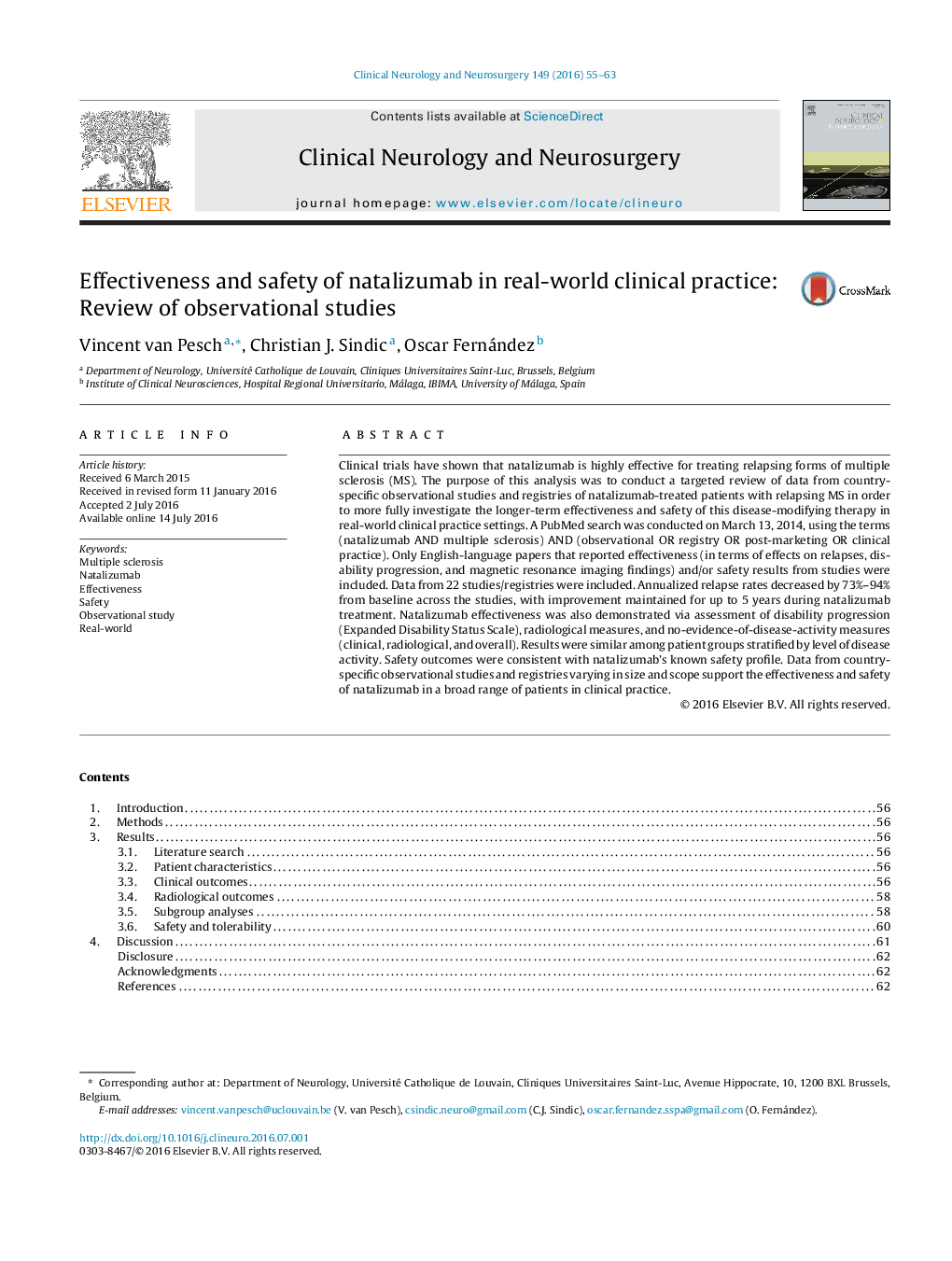| Article ID | Journal | Published Year | Pages | File Type |
|---|---|---|---|---|
| 3039449 | Clinical Neurology and Neurosurgery | 2016 | 9 Pages |
•Natalizumab was effective in 22 country-specific observational studies.•There was no evidence of new safety signals across real-world natalizumab studies.•Findings demonstrate the utility of natalizumab in real-world clinical practice.
Clinical trials have shown that natalizumab is highly effective for treating relapsing forms of multiple sclerosis (MS). The purpose of this analysis was to conduct a targeted review of data from country-specific observational studies and registries of natalizumab-treated patients with relapsing MS in order to more fully investigate the longer-term effectiveness and safety of this disease-modifying therapy in real-world clinical practice settings. A PubMed search was conducted on March 13, 2014, using the terms (natalizumab AND multiple sclerosis) AND (observational OR registry OR post-marketing OR clinical practice). Only English-language papers that reported effectiveness (in terms of effects on relapses, disability progression, and magnetic resonance imaging findings) and/or safety results from studies were included. Data from 22 studies/registries were included. Annualized relapse rates decreased by 73%–94% from baseline across the studies, with improvement maintained for up to 5 years during natalizumab treatment. Natalizumab effectiveness was also demonstrated via assessment of disability progression (Expanded Disability Status Scale), radiological measures, and no-evidence-of-disease-activity measures (clinical, radiological, and overall). Results were similar among patient groups stratified by level of disease activity. Safety outcomes were consistent with natalizumab’s known safety profile. Data from country-specific observational studies and registries varying in size and scope support the effectiveness and safety of natalizumab in a broad range of patients in clinical practice.
